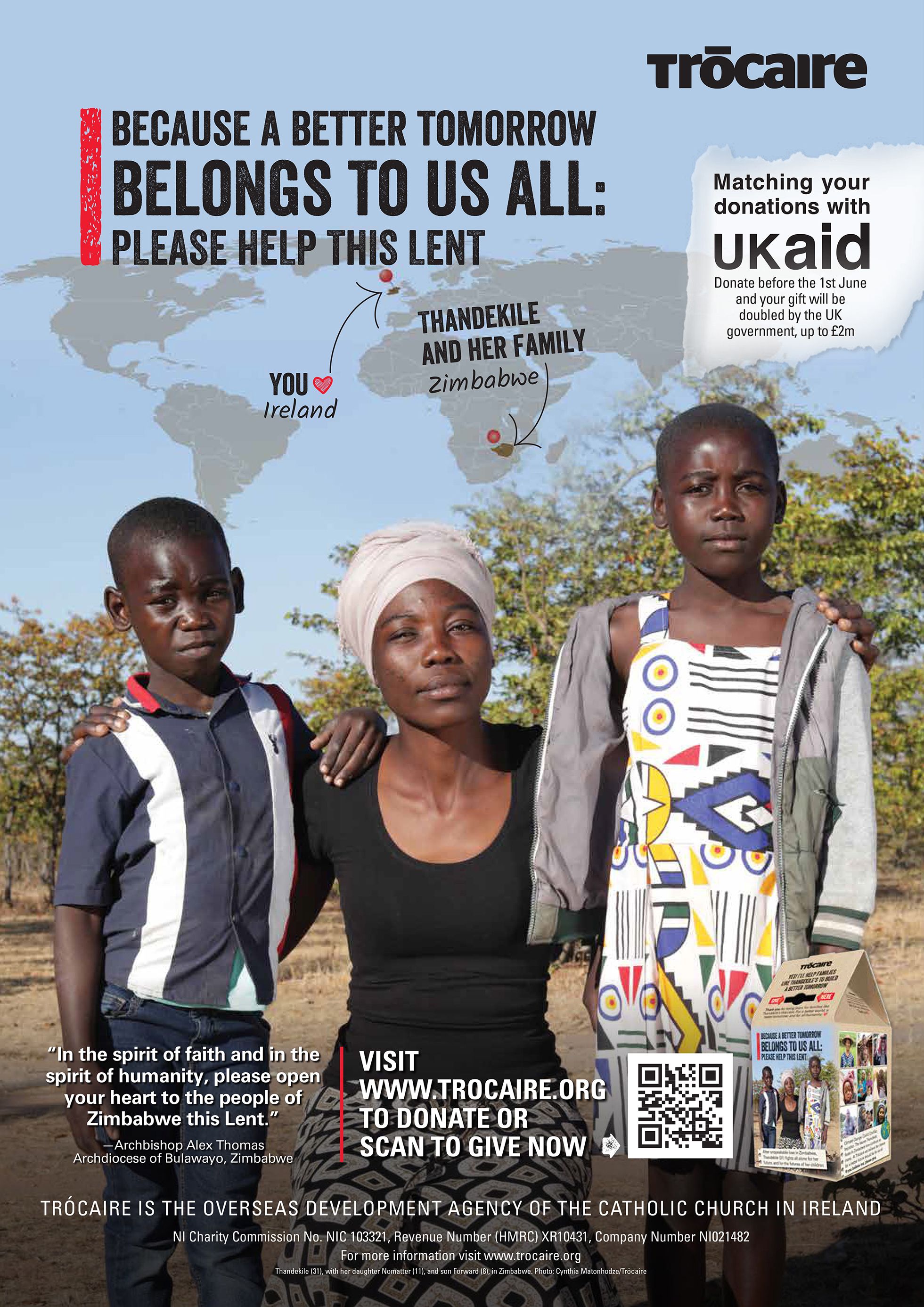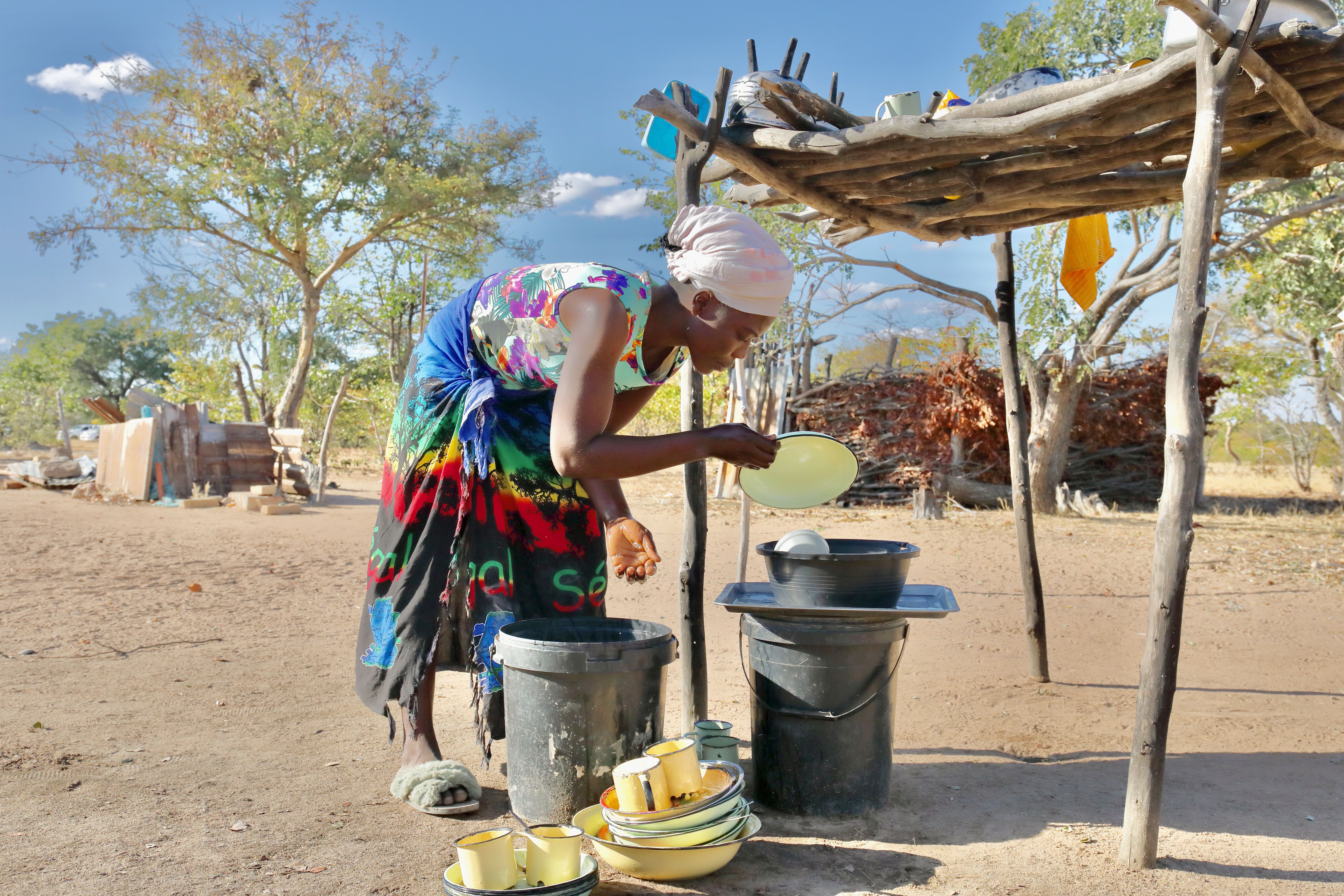An audience has heard that the effects of climate change are disproportionately affecting women and that this needs to be recognised if the crisis is to be effectively tackled. Dr. Carmody Grey, assistant professor of Catholic Theology at the University of Durham and Lucy Vokhiwa, chair of the Catholic Women Organisation in Malawi, were the joint speakers at the Annual Trόcaire Lecture which took place on International Women’s Day. The lecture, which was jointly hosted online by Trόcaire and St. Patrick’s College, Maynooth, was titled ‘How women of faith are responding to the ecological crisis’ and nearly 300 people attended.
Dr. Carmody Grey told the audience that “Catholic teaching has very consistently recognised that to live the truth of human dignity requires taking environmental care seriously”.
“The way we interact with and modify the natural environment is directly an issue of justice in which we must take responsibility for others. Catholic teaching requires that we not separate what is good for one from what is good for another. Unequal resource use totally contravenes the justice of God’s plan. So climate change is a moral problem as well as a technical, economic and scientific one. Pope Francis has highlighted the justice dimension of environmental ethics and he gives definitive priority to the vulnerable by using the very poignant expression ‘the vast ranks of the excluded’,” Dr. Grey said.
“Entrenched discrimination, inequality of opportunity and unequal representation is still the reality for many women in the world. Women are far more likely to be poor and are more vulnerable to, and more likely to be impacted by, the effects of climate change because of the roles they play in their families and their communities. This flies in the face of the basic principles of natural justice and Catholic Social Teaching.”
“Women are on the frontline of climate change. Being a mother is vastly more difficult in situations of climatic stress. Women skip meals so that other members of the family can have enough to eat. In Kenya, some women have to spend eight hours every day walking to fetch water for their families. The fate of women and the fate of the earth are intimately related and this reality has never been more evident than in today’s world,” said Dr. Grey.
Lucy Vokhiwa spoke about the realities of life for many women in Malawi which is one of the most vulnerable countries in the world in terms of the effects of climate change.
“The majority of the population in Malawi relies on agriculture to survive. Unfortunately we have seen a huge increase in the degradation of our forests because of this. Only around 10% of the population have access to electricity so most women have to spend many hours now searching for firewood in order to be able to cook food for their families. This makes them very vulnerable and puts them at risk of violence including sexual violence. Wood is so scarce that there have been cases of women having to exchange sex for firewood,” Ms. Vokhiwa said.
“There is a knock-on effect to women spending so much time away from their homes. It often falls on the young girls in families to look after the house – cooking, cleaning and taking care of their siblings. Many young girls cannot attend school because of these responsibilities. These things are putting huge pressure on females in Malawi.”
“As a Catholic women’s organisation we are doing various things to try to make things better. Firstly to help combat the effects of climate change we are planting trees. We have been doing this for the past five years and have now managed to bring corporate partners on board to support this. Secondly we are teaching women to use better and more environmentally sustainable farming methods and thirdly we are supporting women to implement cooking techniques which rely less on firewood and charcoal. We have also started a project in schools that aims to educate our children on the impacts of climate change and how we can combat these. If we can get our children involved in initiatives such as tree-planting then our forests may be replenished in the future. We believe that with these initiatives we can make a real difference in Malawi,” Ms. Vokhiwa said.

Speaking after the event, Trόcaire CEO Caoimhe de Barra said: “Both contributions were insightful, thought-provoking and very clearly delivered. The content was grounded in the reality of life for women in Malawi and challenged us in our understanding of Church teaching and in the need to take stronger action to address climate and gender justice issues.”
All donations made by the public in Northern Ireland to Trόcaire’s Lenten Appeal will be matched pound for pound by the UK government until 1st June doubling the impact you can make.
To make a donation or to find out more about Trόcaire’s work visit www.trocaire.org






